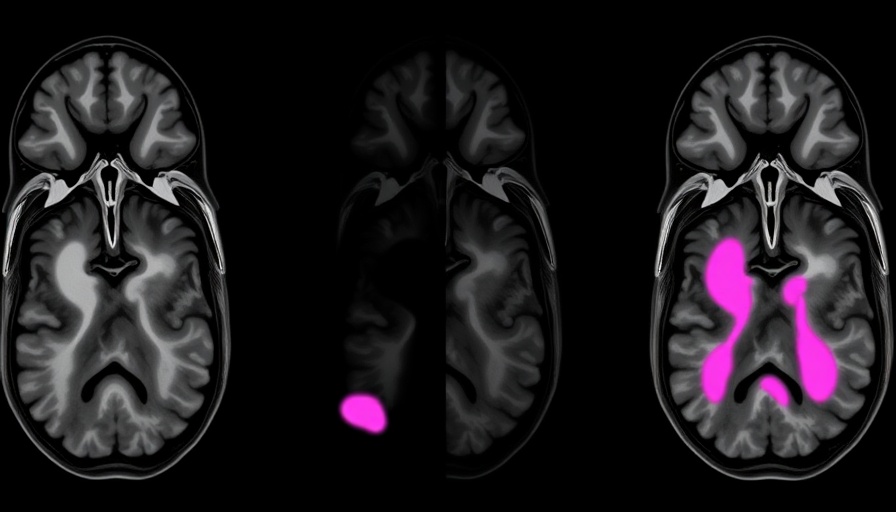
Understanding Your Brain's Overnight Duties
As you drift off to sleep, your brain embarks on an essential mission—one that involves stabilizing your blood sugar levels while you rest. Scientists at the University of Michigan have recently identified a unique group of neurons in the brain's hypothalamus, responsible for this critical oversight. The specific neurons, known as VMHCckbr neurons, play a vital role during the night, especially in the early stages of sleep when glucose levels might drop dangerously low. This newfound understanding of brain function could open pathways to better manage conditions like prediabetes, impacting how we view health and lifestyle choices.
How Your Brain Prevents Sugar Crashes While You Sleep
During those first crucial hours of sleep, your body engages in a complex biochemical dance. The VMHCckbr neurons ensure that the body’s glucose levels remain stable by directing it to burn fat through a process called lipolysis. This conversion of fats into glycerol serves as a source of sugar, protecting against hypoglycemia. "In the first four hours after you go to bed, these neurons ensure that you have enough glucose so that you don't become hypoglycemic overnight," states Alison Affinati, M.D., Ph.D. Thus, as you lay unconscious, your body is actively maintaining energy levels, showcasing the sophisticated workings of human biology.
Connections to Prediabetes: The Hidden Risk
The implications of this research extend to metabolic health, particularly in understanding prediabetes. Individuals with this condition often display abnormal metabolic patterns, suggesting that their VMHCckbr neurons may be overactive. This overactivity leads to heightened lipolysis during the night, potentially resulting in increased blood sugar levels. As prediabetes affects a significant portion of the population, this study provides important insights that could guide preventive measures and lifestyle management.
Why This Matters in Your Daily Life
Understanding the relationship between brain function during sleep and metabolic health is essential, particularly for those living in bustling areas like Dallas. In a city known for its vibrant lifestyle, maintaining metabolic balance is crucial. Lifestyle choices, from nutritional habits to sleep hygiene, can dramatically influence how effectively the brain performs these nighttime regulatory functions. Acknowledging the connection between sleep and metabolic health may inspire individuals to adopt healthier practices.
Practical Tips for Better Sleep and Health
So how can you leverage this newfound knowledge? Here are a few practical strategies:
- Prioritize Sleep: Aim for 7-9 hours of quality sleep per night. A well-rested body is more equipped to manage glucose levels effectively.
- Balance Your Diet: Include healthy fats and fiber in your evening meals to provide your body with sustained energy sources for overnight metabolism.
- Monitor Blood Sugar Levels: If you are at risk for metabolic disorders, consider regular monitoring of your glucose levels and consult with healthcare professionals about your evening habits.
Looking Ahead: Future Research Opportunities
As researchers continue to unravel these complex neuronal functions, there are numerous opportunities for future studies. Understanding how these neurons operate not only deepens our comprehension of metabolism but also paves the way for innovative treatments for those struggling with diabetes and related disorders. Continued research in this area could lead to tailored health solutions, improving quality of life for countless individuals.
Conclusion: Take Charge of Your Health
This remarkable research underscores the importance of recognizing how our body operates in the night, and how integral our brain is in maintaining metabolic stability. Adopting a lifestyle that acknowledges the significance of both sleep and nutrition can make a meaningful difference in one’s health trajectory. Make intentional choices today not just for better sleep, but for a healthier future.
 Add Element
Add Element  Add Row
Add Row 



Write A Comment